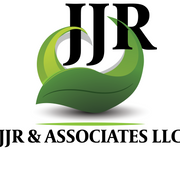5 Deductions Freelancers Can Claim on Their Tax Returns

Freelancing has many benefits, but it also presents unique challenges. For instance, filing taxes can be a particularly daunting task for someone who’s self-employed. Not only do you have to keep meticulously organized financial records and make quarterly payments, but you’re also responsible for paying the portion of taxes that an employer usually covers. As such, it’s essential to get professional tax help to minimize your tax liabilities and remain profitable. In the meantime, here are some of the most common deductions freelancers can claim.
What Can Freelancers Write Off on Their Taxes?
1. Office Supplies
Any supplies you buy to perform your business duties, such as pens, paper, a printer, ink cartridges, software, computer equipment, and office furniture, are all deductible. You’ll need to keep the receipts to add up the total and have as proof of your purchase.
2. Home Office
 If you work from home, the IRS allows you to deduct a portion of your rent or mortgage for the space you have dedicated as your home office. This doesn’t necessarily mean you have to have a separate room in your residence serving as an office, but the space you wish to write off cannot be used for any other purpose. If you have any question about claiming this deduction, tax help specialists can provide clarification.
If you work from home, the IRS allows you to deduct a portion of your rent or mortgage for the space you have dedicated as your home office. This doesn’t necessarily mean you have to have a separate room in your residence serving as an office, but the space you wish to write off cannot be used for any other purpose. If you have any question about claiming this deduction, tax help specialists can provide clarification.
3. Utilities
You can also write off a percentage of the utilities you use to conduct your business from home. This typically includes electricity, gas, heating, air conditioning, and phone service. To do this, you’ll need to make sure you have accurate records of your utility costs and the hours you spend freelancing.
4. Advertising & Marketing
Even as a freelancer, it’s likely you’ll need to advertise your services to generate interest from clients. Any marketing materials you create to help in your advertisement efforts, such as brochures, flyers, and business cards, can be deducted on your tax return.
5. Travel Expenses
If your freelance work requires that you travel to meet with clients or attend trade shows, workshops, or seminars, your tax return may reflect these expenses. Travel costs can include transportation and accommodations, as well as 50% of business meals. If you plan a personal vacation at the same time as a business trip, it’s best to hire professional tax help to ensure you’re only deducting expenses for the portion of the trip that was business related.
Filing taxes as a freelancer doesn’t have to be a stressful experience. The professional accountants at JJR & Associates will explore all potential deduction options to determine which are appropriate for your specific business. They have provided numerous residents throughout the greater Atlanta, GA, area with the tax help they need to reduce their obligations to the IRS and maximize profits. Call (404) 437-7748 to schedule an appointment, or visit them online for valuable tips on preparing for tax season.
About the Business
Have a question? Ask the experts!
Send your question

